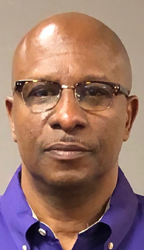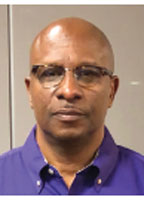
Frank Gaines, Ph.D.
Part Two of Four
The upcoming presidential election has been the dominant headline for quite some time. The COVID-19 pandemic shutdown and subsequent health and economic crisis have commanded worldwide focus and attention most of this year. But the horrific and tragic murder of George Floyd at the hands of police, a Black man, has galvanized and impacted the world in ways none of us could have imagined. This 4-part series looks at the interconnectedness and impact those events can have to affect a positive impact on education. —Frank Gaines, Ph.D.
Frequently, the most enduring aspects of education come through social media because it connects us most often to the environment we ascribe the highest value to, not the one we are told to value. It allows us to interact with whomever, wherever, whenever we desire. The classroom used to educate students during the era of the Brown vs. Board of Education (1954) rulings of the 1950’s is ineffective and has been exposed as such, but we still rely on it to educate 60 years later in a society that is radically different. It is a model that is effective if the goal is to empower the status quo and/or build an attendant work class, but not if you expect to advance a society. Ironically, education has not had an effective substantive makeover or been part of the American political agenda in this century as we move into its third decade.
Our community has the collaborative wisdom, experience, resources and insights to facilitate change predicated on action initiatives. Protests, town halls, political forums and elections must be followed by action. We know the problem, but have we lost sight of the solution process? As an oppressed group, summary judgements, a trial and singular consequences for a perpetrator such as the murderers of George Floyd cannot be accepted as end goals after yet another one of a string of ever-present tragic and unjust outcomes for a Black man. Although shocking to mainstream society, images like the death of George Floyd have been etched into the mind and history of Black people in America since we set foot on its shores 400 years ago. They are not new, but smartphones reveal them as part of America’s ugly underbelly in real time and won’t let its conscience rest.
According to a study published by the Proceedings of the National Academy of Sciences (https://www.pnas.org/content/116/34/16793), “Over the life course, about 1 in every 1,000 black men can expect to be killed by police”. Police logic that necessitates the perception that deadly force must be used to engage Black men demands we look at cause and effect. It is a cyclical debate that warrants historical context. The discussion to accomplish that would have to go back 400 years and is beyond the scope of this article and would cloud the discussion and action that needs to take place now. So what do we seek after justice?
When the march ends, the protest is over, the verdict is read and the perpetrator goes to jail, or not, what comes next? What will have changed? Do emotions rest until the next tragedy? Does an agenda result or is one in place that can gain traction and can make a difference? Is this a moment or a movement? Only time will tell. The sustained dominant event of media focus is the upcoming presidential election. I am reminded that all politics is local and I will also suggest that all change is local and context specific. It doesn’t come from the outside- it comes from within. The change agents are among us; they are us. Will we continue to react or be proactive? If justice is the end goal then we’ve reacted. If we are proactive, the agenda has to extend beyond justice and include education and the opportunities it provides for change. Action begins with the end in mind. What do we want? Justice? Justice hasn’t changed outcomes in what mainstream society refers to as the dystopian communities we live in, were raised in or have ties to. I preface my dialog with that statement because although some of us don’t physically live in the aforementioned communities anymore, our roots are there, so we have a responsibility to them. Without them, there would be no us.
Law enforcement is expected to serve and protect these communities and others, but outcomes and approaches are different. When cases of engagement with Black men resulting in the use of deadly force appear, they represent action on the front line. For every 1 in 1000 that dies, there are 999 who fall short of death but still suffer to varying degrees, and that is no less acceptable. It is hidden and subversive. It is hidden in expectations that we can and should influence.
“The individual must have the power to stand up and count for something in the actual conflicts of life.” — John Dewey
“I’m for truth, no matter who tells it. I’m for justice, no matter who it’s for or against.” — Malcolm X



Be the first to comment